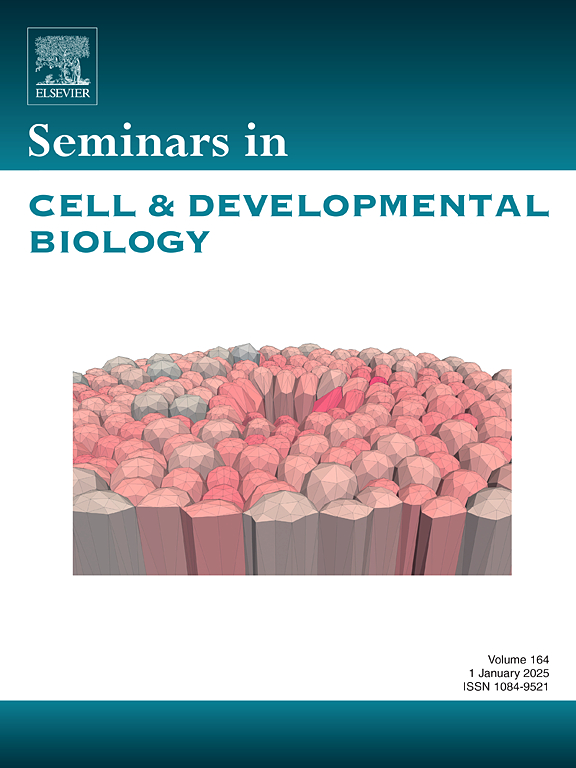Start early and pack light: Collaborative adventures in theory and experiment
IF 6
2区 生物学
Q1 CELL BIOLOGY
引用次数: 0
Abstract
Collaboration between experimental and theoretical work is crucial to unraveling the complexity of living systems. To be productive, such collaborations require some often-scarce resources: most importantly, the time, manpower, and perseverance to iterate through multiple model formulations and experimental measurements. We argue that much can be learned from models which are highly simplified and initially ‘wrong’ or inconsistent with observations, and that the goal of theory in biology should not be primarily to provide a fit to existent experimental data. Instead, theoretical models should shed light on the key features of the system, providing insight on the missing pieces in our conceptual pictures and suggesting new measurements which can help fill in the gaps. Here, we describe a case-study from our own collaborative experience, focused on understanding the distribution of mitochondria in dendritic arbors. This story proceeded in an iterative manner from initial observations of dendritic structure and mitochondrial dynamics, to the construction of simple models, and back to original measurements and model refinement. Along the way, we came to appreciate some general principles for productive theory — experiment collaboration, which we proceed to highlight here.
尽早开始,轻装上阵:理论和实验的合作冒险
实验和理论工作之间的合作对于揭示生命系统的复杂性至关重要。为了取得成效,这样的合作需要一些通常稀缺的资源:最重要的是,时间、人力和坚持不懈地通过多个模型公式和实验测量进行迭代。我们认为,我们可以从高度简化的模型中学到很多东西,这些模型最初是“错误的”或与观察结果不一致的,生物学理论的目标不应该主要是提供与现有实验数据的拟合。相反,理论模型应该揭示系统的关键特征,为我们的概念图中缺失的部分提供见解,并提出有助于填补空白的新测量方法。在这里,我们描述了一个案例研究,从我们自己的合作经验,重点了解线粒体在树突乔木的分布。这个故事以迭代的方式进行,从最初的树突结构和线粒体动力学观察,到简单模型的构建,再到原始测量和模型的改进。在此过程中,我们逐渐认识到一些有效的理论-实验合作的一般原则,我们在这里继续强调这些原则。
本文章由计算机程序翻译,如有差异,请以英文原文为准。
求助全文
约1分钟内获得全文
求助全文
来源期刊
CiteScore
15.10
自引率
1.40%
发文量
310
审稿时长
9.1 weeks
期刊介绍:
Seminars in Cell and Developmental Biology is a review journal dedicated to keeping scientists informed of developments in the field of molecular cell and developmental biology, on a topic by topic basis. Each issue is thematic in approach, devoted to an important topic of interest to cell and developmental biologists, focusing on the latest advances and their specific implications.
The aim of each issue is to provide a coordinated, readable, and lively review of a selected area, published rapidly to ensure currency.

 求助内容:
求助内容: 应助结果提醒方式:
应助结果提醒方式:


